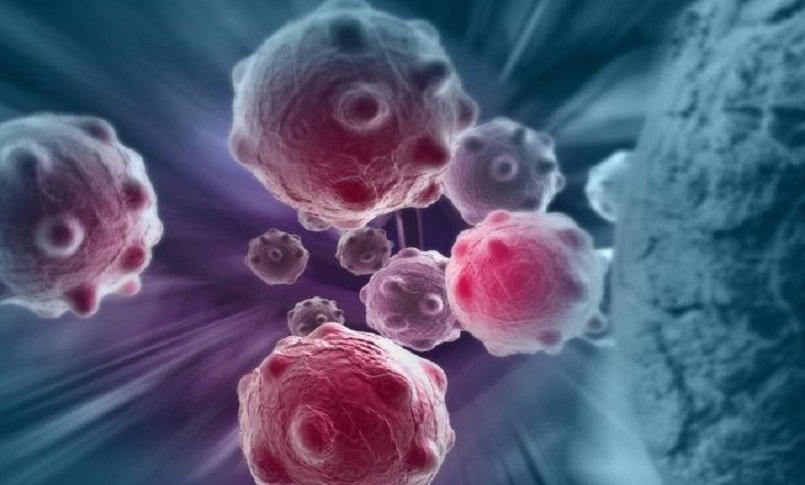
The Mediterranean Diet and its health benefits for different types of cancers
A Powerful Tool for Cancer Prevention
Numerous studies have been associated with:
Reduced Cancer Risk: Adhering to the Mediterranean diet may lower the risk of colorectal, breast, liver, respiratory, gastric, and head and neck cancers.
Improved Overall Health: Beyond cancer prevention, the Mediterranean diet has numerous other health benefits.
An updated systematic review and meta-analysis on adherence to the Mediterranean diet and risk of cancer: highest adherence to the MedDiet was related to lower risk of cancer mortality in the general population. Read more.
In the following sections, we will delve deeper into the specific findings, exploring the evidence supporting the Mediterranean diet's role in cancer prevention and the underlying mechanisms involved.
Colorectal cancer
Specific ingredients of the Mediterranean diet could prevent colorectal cancer by either reducing inflammation or preserving a healthy microbiota in the intestine. Read more
The Mediterranean diet may reduce colorectal cancer risk and the effects of the Mediterranean diet on site-specific cancers concluded decrease in tumor risk may be more for the distal colon as opposed to the proximal colon. Read more
Women adhering to a Mediterranean dietary pattern may have a lower risk of colorectal cancer, especially rectal cancer. Read more
WTAJ News Sep 4, 2024 Colorectal cancer is the third most common cancer diagnosis in both men and women with an expected 106,000 new cases of colon cancer and 46,000 new cases of rectal cancer being diagnosed nationwide in 2024.
Breast cancer
Consuming a Mediterranean diet, which includes legumes, fish, fruits and vegetables, black tea, coffee, and a low intake of dairy products, works as a preventive factor against breast cancer in postmenopausal females from the Saudi Arabia region. Read more
The Mediterranean diet is a nutritious diet that aids in maintaining a healthy body weight and has a protective effect against breast cancer. Read more
The beneficial effect of a Mediterranean diet supplemented with extra-virgin olive oil has the primary prevention of breast cancer. Read more
Consumption of EVOO in moderate quantities and throughout life appears to be a healthy choice and may have a beneficial effect on breast cancer risk. Read more
Adherence to the MD correlates with improved quality of life measures and reduced mortality rates among women with breast cancer, particularly in older age groups. Read more
CBS News Sep 15, 2015 Mediterranean Diet could decrease the risk of breast cancer for women between the ages of 60 and 80 of 68%
Lung cancer
Implementation of the Mediterranean diet for 3 months has promising results in regulating the advanced lung cancer inflammation index (ALI), platelet count, and glycemic profile of patients with advanced lung cancer (stages III-IV). Read more
The Mediterranean diet has a protective factor against lung cancer. Read more
WMAR-2 News Aug 31, 2010 A diet rich in fruits and vegetables can reduce the risk of lung cancer.
American Cancer Society July 11, 2023 Learn more about diet and nutrition during and after cancer treatment
Dr James Meschino Jan 29, 2021 Mediterranean Diet Shown to Help Contain Low-Grade Localized Prostate Cancer.
Stomach cancer
Higher Mediterranean diet adherence is associated with reduced risks of esophageal squamous cell carcinoma(ESCC), gastric cardia adenocarcinoma(GCA), and gastric non-cardia adenocarcinoma(GNCA). However, the decreased ESCC risk might be limited to men. Read more
Mediterranean Diet, high in fruits and vegetables and low in processed meat and fat is beneficial to reducing the Gastric cancer risk. Read more
Risk reduction for gastric cancer is ranged from 48% to 68% for high adherence to the Mediterranean and from 16% to 57% for medium adherence to the diet. Read more
Pancreatic cancer
Adherence to a Mediterranean diet pattern may also have a beneficial role on pancreatic cancer. Read more
Skin cancer
The Mediterranean Diet is associated with a lower risk of skin cancer, particularly in the case of melanoma and basal cell carcinoma. Read more
Endometrial Uterine and Bladder cancer
The beneficial role of the Mediterranean diet on endometrial cancer risk, suggests a favorable effect of a combination of foods rich in antioxidants, fibers, phytochemicals, and unsaturated fatty acids. Read more
Adherence to the Mediterranean diet was associated with a reduced risk of developing bladder cancer, suggesting a positive effect of the diet as a whole and not just one component. Read more
